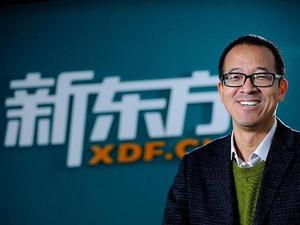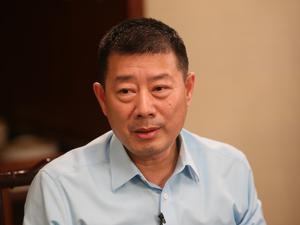安装新浪财经客户端第一时间接收最全面的市场资讯→【下载地址】
原标题:专访《灰犀牛》作者米歇尔·沃克:礼貌地说,美国股市会是一场即将发生的灾难。
原创 经济学家圈

米歇尔.渥克(Michele Wucker),世界级畅销书《灰犀牛》作者全球思想领袖,2007年古根海姆学者奖获得者,2009年世界经济论坛“青年领袖”,她身兼数职,担任总部在纽约的国际政策研究所所长、芝加哥议会全球事务研究中心副主任、《国际金融评论》拉美办公室主任。曾多次给《纽约时报》《华盛顿邮报》《国际政策》等媒体撰写文章。
米歇尔·沃克:通过为低收入阶层提供风险保护伞来促进消费
国内需求和消费对强劲的经济至关重要。长期以来,刺激内需(即内循环)一直是中国面临的挑战,我很高兴看到它受到了优先关注。成功平衡投资和消费将决定该政策的成功程度。增加消费的一种方法是为社会经济阶梯上位置较低的人们提供更好的风险保护伞。因为假如从较低的基数开始,在现有收入上增加任何额外可自由支配的收入都会产生更大的影响,所以同与较高收入人群有关的政策相比,这种方法可以更加快速地帮助提升消费。
如果人们可以不再那么担心需要在紧急医疗情况下支付的费用,不再那么担心自己的退休储蓄,或担心退休时需要帮助父母的花销,那么他们就可以向经济中注入更多资金。或许制定一个基础收入的目标也是可以考虑的,要为那些处在受到冲击的产业当中的人,由于年老而无法投身于获得新技能的人,由于年轻而可以付出时间与精力来获得新能力但需要资金支持的人提供帮助。不同于从未向下渗透到任何人的“渗透向下策略(trickle-down strategy)”,这种“向上渗透策略(trickle-up strategy)”可以帮助企业,进而帮助投资者,从而使得所有人获益。
在下一个五年计划中,应该确保优先解决我提到的三个很大的“灰犀牛”:解决金融脆弱性,气候危机和不平等问题。所有这些预防风险的政策方向都同时支持着经济增长。在抵制过度负债的同时,提供广泛的信贷渠道将支持高质量的经济增长;减缓气候变化的措施将激励创新、创造就业机会,并最终通过减缓气候变化和减少极端天气带来的经济影响来减少金融脆弱性。这两者都将有助于解决不平等问题,但是通过更好地支持弱势群体来减少不平等的现象,中国的经济基础将会加强。
Domestic demand and consumption are so important to a strong economy. Stimulatingdomestic demand --ie the internal loop—has long been a challenge for China andI am happy to see it getting priority attention. Balancing investment andconsumption successfully will determine how successful the policy is. One wayof increasing consumption is to provide a better risk umbrella to people loweron the socio-economic ladder. Because you are starting from a lower base andany additional discretionary income has a bigger impact, you can increaseconsumption more quickly than with higher income populations.
If people are notas worried about covering emergency health care costs or saving for retirementor having to help their parents in retirement, they can pump more money intothe economy.It would also be worth considering a targeted basic income forpeople in industries that are being disrupted and may be too old to invest ingaining new skills or are young enough that they can afford to invest time andenergy in new skills but need financial help. This trickle-up strategy would help businesses and in turn investors, so everyone wouldbenefit, unlike trickle-down strategies that never really trickle down toeveryone.The next five-year plan should make sure to prioritize addressing the threebig gray rhinos I mentioned: addressing.
经济学家圈:如何看待当下的世界经济发展?新冠疫情为世界带来了什么影响?会不会改变世界经济的发展趋势?
米歇尔.渥克:当下的新冠疫情引起了人们对于一些尚未充分解决的、明显的“灰犀牛”风险的重视。明显的“灰犀牛”风险,正包括对于流行病爆发的应对措施,以及医疗服务获取的不足。
这次的疫情已经降低了我们对于经济增长前景的预测,同时也为世界经济预测加上了一笔“未知的税”。对于迅速采取行动并控制住新冠疫情的国家来说,经济前景更加光明。但是在美国这样大、并且对世界经济有重大影响的国家,疫情的控制仍然遥遥无期,这也将使得世界经济遭受更长时间的负面影响。而如果决策者和每个公民曾将这个风险用更严肃的态度面对,这份冲击原本并不会持续这么长的时间。在疫苗面世并且一定数量的人已经收到疫苗以前,这种病毒将成为阻碍全球经济真正反弹的重要力量。
我们将会继续看到供应链的中断,而其中最令人不安的是食物供应的中断。我们将继续看到不平等现象的加剧,以及美国等国家中社会不稳定的加剧。这种不平等将继续拖累全球经济,因为当更多的金钱掌握在超级富豪的手中时,留给拥有较低的人群的财富就更少,而他们是最需要这些资源去消费、并维持经济繁荣的。
只要经济问题持续,就会诱使太多的政策制定者在贸易、气候、以及全球合作方面奉行以邻为壑的政策。低息的措施会推迟公司、个人以及国家的债务危机,然而高水平的债务会继续成为世界经济的一个危险,特别是如果世界经济的增长没有更加快速地复苏的话。
经济学家圈:自新冠疫情爆发以来,美国股市快速上涨,对美国股市您有什么样的评价?
米歇尔.渥克:礼貌地说,美国股市会是一场即将发生的灾难。即使在近期出现亏损之后的价格,仍然与经济上的现实脱节。就像我们在“荷兰郁金香狂热(DutchTulip Mania)”中看到的那样,最终投资者将意识到他们手中持有的那些纸张的潜在价值不能合理地论证它们的价格。
最近有人对我说,当前的经济形式让他们想起了2007年。当时,房地产市场已经出现了严重的裂痕,但“多米诺骨牌”效应还没有在经济和市场中蔓延。这种情况正是我在今天感受到。就像在次贷危机中一样,许多受到伤害的人也将会是“小人物”。美国股市吸引了许多小型的,所谓的“零售”投资者,其中许多人利用政府的刺激性支票来投资“仙股(市值跌至l元以下的股票)”。事实上机构投资者拥有更多的信息,并有更强的能力对抗它们,他们仍承受着巨大的风险。
“郁金香狂热”:1637年发生在荷兰,是世界上最早的泡沫经济事件。当时由奥斯曼土耳其引进的郁金香球根异常地吸引大众抢购,导致价格疯狂飙高,然而在泡沫化过后,价格仅剩下高峰时的百分之一,让荷兰各大都市陷入混乱。
经济学家圈:如何看待当下的中美关系,中美会脱钩吗?
米歇尔.渥克:我非常关切的是,我们已经看到了脱钩的发生,特别是在科学技术领域。企业是不希望脱钩的,但现任美国政府已经把中国塑造成了一个可怕的、莫须有的妖怪(bogeyman)来分散人们对于美国自身失败的注意力。我希望并相信,下一届美国政府将采取更具建设性的态度。事实上,当下的政策在投资领域对美国的伤害比对中国的要更大,因为中国对美国的外国直接投资(FDI)大幅下降,但美国对中国的投资在今年上半年有所增加。然而,这绝不仅仅是两国国家之间的问题:整个世界已经受到了影响。科技领域的脱钩会带来一个低效的双轨制系统。
在1970年代和1980年代,Betamax与VCR针对视频录制市场的的竞赛并不是有建设性的竞争。在今天,我们看到的情况是更加糟糕的,特别是由于技术只有在全球兼容时,才是最有效的。我还感到关切的是,国家之间的商业联系越紧密,地缘政治冲突的可能性就越低。
录像带格式战指的是在1970年代末期至1980年代发生之数种不兼容的录像机格式的竞争。它被认为是市场销售竞争的经典案例。
经济学家圈:您现在看到了什么“灰犀牛”?
米歇尔.渥克:现在在回答这个问题的时候,我会渐渐开始犹豫。因为这个概念,在人们为自己识别“灰犀牛”的时候最有效。但是总的来说,我一直将注意力集中在三大相互密切相关的全球政策大问题上:气候变化,金融脆弱性和不平等问题。
中央银行和投资者越来越多地发出警告,即气候变化给沿海地区,干旱和容易发生野火的地区的房地产价值带来巨大的金融风险,进而对保险公司,供应链,企业和市政财政产生巨大的潜在连环性影响。由于我们已经等待了很长时间才开始采取行动,因此从化石燃料行业撤出的投资将比其他情况更加陡峭,并产生更大的冲击。
金融的脆弱性——特别是从实体经济中吸走金钱的资产泡沫——加剧了不平等现象,拖累了经济增长,反过来又加剧了金融的脆弱性。气候变化加剧了不平等现象,因为对温室气体的贡献最小的地方最容易受到极端天气的影响,并且那些地方拥有最少的可以保护自己或重建的资源。气候变化也正在解冻多年冻土并释放出更多的病原体。
经济学家圈:如何看待人民币国际化?
米歇尔.渥克:人民币国际化需要权衡取舍。从积极的一面看,人民币国际化会使得许多交易变得更加简单。并且,拥有除了美元以外的其他储备货币也是有吸引力的。但是国际化也意味着放弃对货币政策的大量控制,而这可能进而造成潜在的内部经济冲击。无论做出什么决定,重要的是要考虑赢家和输家,并确保最容易遭受意外后果的人受到保护。
经济学家圈:国如何看待中国现在提出的“双循环”?
米歇尔.渥克:国内需求和消费对强劲的经济至关重要。长期以来,刺激内需(即内循环)一直是中国面临的挑战,我很高兴看到它受到了优先关注。成功平衡投资和消费将决定该政策的成功程度。
增加消费的一种方法是为社会经济阶梯上位置较低的人们提供更好的风险保护伞。因为假如从较低的基数开始,在现有收入上增加任何额外可自由支配的收入都会产生更大的影响,所以同与较高收入人群有关的政策相比,这种方法可以更加快速地帮助提升消费。
如果人们可以不再那么担心需要在紧急医疗情况下支付的费用,不再那么担心自己的退休储蓄,或担心退休时需要帮助父母的花销,那么他们就可以向经济中注入更多资金。
或许制定一个基础收入的目标也是可以考虑的,要为那些处在受到冲击的产业当中的人,由于年老而无法投身于获得新技能的人,由于年轻而可以付出时间与精力来获得新能力但需要资金支持的人提供帮助。不同于从未向下渗透到任何人的“渗透向下策略(trickle-down strategy)”,这种“向上渗透策略(trickle-up strategy)”可以帮助企业,进而帮助投资者,从而使得所有人获益。
经济学家圈:“重塑全球产业链”在中国受到了广泛的讨论,您对此有什么看法?
米歇尔.渥克:毫无疑问,我们正在看到供应链的变化:地点的多样化,随着人们意识到手头上有额外的库存,对“及时制度(Just-In-Time)”精益供应链心态的重新思考。我不支持提高贸易壁垒的种种行为。
同时,我认为从气候角度来看,关注区域供应链是有意义的。在世界各地运输货物会产生巨大的碳债务,因此,行进的距离越短,碳足迹越小越好。尽管我认识到计算商品的碳足迹是很复杂的,但我仍希望看到所有产品至少都包含一个粗略的估算,以便人们可以选择并且鼓励那些减少环境影响的公司。
及时制度(Just-In-Time):通过减少生产过程中的库存和相关的顺带成本,改善商业投资回报的管理战略。
经济学家圈:对于中国的“十四五”,也就是下一个五年计划,您有什么看法?
米歇尔.渥克:在下一个五年计划中,应该确保优先解决我提到的三个很大的“灰犀牛”:解决金融脆弱性,气候危机和不平等问题。所有这些预防风险的政策方向都同时支持着经济增长。
在抵制过度负债的同时,提供广泛的信贷渠道将支持高质量的经济增长;减缓气候变化的措施将激励创新、创造就业机会,并最终通过减缓气候变化和减少极端天气带来的经济影响来减少金融脆弱性。
这两者都将有助于解决不平等问题,但是通过更好地支持弱势群体来减少不平等的现象,中国的经济基础将会加强。
经济学家圈:您可以为中国的青年经济学家们提些建议吗?
米歇尔.渥克:不要只为其他经济学家写文章;要想一想如何将自己的研究同现实世界、而不只是理论联系起来,同时要以能够被接受、理解的方式交流自己的研究。
很重要的是要在公众当中发展经济素养,风险素养和政策素养。当人们了解了决策者必须做出的艰难权衡时,关于这些政策的沟通和落实就会更轻松,也不会产生太大的反对。
以下为英文全文:
Q: What‘s your opinion on the current world economicdevelopment? What changes do you think COVID-19 has brought to the world? Willit change the trend of the world economy?
A: COVID-19 has drawn attention to the cost of failing toadequately address obvious gray rhino risks like the threat of pandemics andweaknesses in access to health care. It already has cut short-term economicgrowth forecasts and has imposed an uncertainty tax on the global economy. Forcountries that moved quickly to get the novel coronavirus under control, theoutlook is brighter. But with COVID-19 nowhere close to under control in acountry as big and important to the global economy as the United States, theglobal economy is going to suffer longer than it would have if more Americans-both policy makers and individual citizens—had taken the risk more seriously.
Until we have vaccines and a critical mass of people hasreceived them, the virus will be a weight keeping the global economy from atrue rebound.
We will continue to see supply-chain interruptions, mostdisturbingly including food. We will continue to see increasing inequality,along with rising social instability in countries like the United States.
This inequality also will be a drag on economies because themore money is concentrated in the hands of the super-wealthy, the less there isfor the least-well off, who need it the most, to consume and keep economieshumming.
And as long as there are economic troubles, too many policymakers will be tempted to pursue beggar-thy-neighbor policies on trade, climateand global cooperation in general.
Low interest rates will postpone debt crises for companies,individuals, and countries, but high debt levels remain a danger for the globaleconomy especially if growth does not pick up more quickly.
Q: Since COVID-19, U.S. stocks have risen rapidly, whatdo you think of the U.S stock market?
A: Put politely, the US stock market is a disaster waiting to happen. Pricesare way out of touch with economic reality, even after the recent losses. Andjust as we saw with the Dutch Tulip Mania,eventually investors will realize that the underlying value of the paper theyhold does not justify its price. Someone said to me recently that the currenteconomy reminds them of 2007, when the deep cracks in the housing marketalready were showing but the domino effect had not yet rippled through theeconomy and markets. That’s what it feels like today to me too. Just like inthe subprime crisis, many of the people hurt will be the “little guys.” The USstock market has attracted many small, so called “retail” investors, many ofwhom used their government stimulus checks to invest in penny stocks. They aretaking big risks despite the fact that institutional investors have moreinformation and the power to move against them.
Q: What‘s your view on the relationship between U.S.and China, is there a risk of decoupling?
A: I am deeply concerned that we are already seeing decoupling, particularlyaround technology. Businesses do not want decoupling, but the currentadministration in the United States has made China the bogeymanto distract Americans from its own failings. I hope and believe that the nextUS administration will take a much more constructive approach.
In fact, the current policies have hurt the US far more thanChina on the investment side, as foreign direct investment from China into theUnited States has plummeted but U.S. investment into China rose for the firsthalf of the year. But it’s not just a matter of our two countries: the wholeworld is affected. Decoupling in technology will result in an inefficient,two-track system. The Betamax versus VCR competition for the video recordingmarket in the 1970s and 1980s was not a constructive competition. What we areseeing today is far worse, especially since technology is most useful when itis compatible globally. I also am concerned because the closer commercial tiesare between nations, the lower the odds of geopolitical conflicts.
Q: What are the “Gray Rhinos” you see sofar?
A: I have begun to hesitate to answer this question because the concept worksbest when people identify gray rhinos for themselves. But in general I havebeen focusing my attention on a trio of big global policy issues that areclosely related to each other: climate change, financial fragilities, and inequality. Central banks and investors have increasingly sounded the warningthat climate change poses huge financial risks to real estate values in coastaland drought and wildfire-prone areas and thus in turn to insurers, supplychains, businesses, and municipal finances, creating a huge potential dominoeffect. Because we have waited so long to act, the withdrawal of investmentfrom fossil fuel industries will be steeper and create a bigger shock than itwould have otherwise. Financial fragilities –in particular asset bubbles thatare sucking money out of the real economy—worsen inequality and drag downeconomic growth which in turn worsens financial fragilities. And climate changeworsens inequality because the places that have contributed the least togreenhouse gases are the most vulnerable to extreme weather and have the leastresources to protect themselves or rebuild. Climate change also is thawing permafrost and releasing morepathogens.
Q: How do you think of RMB‘s internationalization?
A: There are trade-offs to the internationalization of the RMB. On thepositive side, it makes many transactions simpler. And having an additionalalternative reserve currency to the dollar is attractive. Butinternationalization also means giving up a lot of control over monetary policyand in turn could create potential internal economic shocks. In whateverdecisions are made, it’s important to consider the winners and losers and makesure that those who are most vulnerable to unintended consequences areprotected.
Q: China has now proposed a ‘dual loop’ strategy whichfocuses on the internal loop, what do you think of it?
A: Domestic demand and consumption are so important to a strong economy. Stimulatingdomestic demand --ie the internal loop—has long been a challenge for China andI am happy to see it getting priority attention. Balancing investment andconsumption successfully will determine how successful the policy is. One wayof increasing consumption is to provide a better risk umbrella to people loweron the socio-economic ladder. Because you are starting from a lower base andany additional discretionary income has a bigger impact, you can increaseconsumption more quickly than with higher income populations. If people are notas worried about covering emergency health care costs or saving for retirementor having to help their parents in retirement, they can pump more money intothe economy. It would also be worth considering a targeted basic income forpeople in industries that are being disrupted and may be too old to invest ingaining new skills or are young enough that they can afford to invest time andenergy in new skills but need financial help. This trickle-up strategy would help businesses and in turn investors, so everyone wouldbenefit, unlike trickle-down strategies that never really trickle down toeveryone.
Q: The reshaping of the global industrial chain is nowwidely discussed in China, what‘s your opinion on it?
A: Definitely we are seeing supply chain changes:diversification of locations, re-thinking of the “just in time” lean supplychain mentality as people realize that having extra inventory on hand. I do notsupport efforts to raise trade barriers. At the same time, I think thatfocusing on regional supply chains makes sense from a climate perspective.Transporting goods all around the world creates a tremendous carbon debt, sothe less distance things travel and the smaller carbon footprint, the better.While recognizing that calculating carbon footprints of goods is complicated, Iwould like to see all products include at least a rough estimate so that peoplecan choose and reward companies that reduce their environmental impact.
Q: China is formulating the next five-year plan(2021-2025), can you give some suggestions?
A: The next five-year plan should make sure to prioritize addressing the threebig gray rhinos I mentioned: addressing financial fragilities, the climatecrisis, and inequality. All of these are risk prevention policy directions thatalso support growth. Providing broad access to credit while discouraging overindebtedness will support quality growth. Climate mitigation measures will spurinnovation, create jobs, and ultimately can reduce financial fragilities byslowing climate change and the economic impact of extreme weather. Both willhelp to address inequality, but by reducing inequality through better supportto vulnerable populations China will strengthen the foundation of the economy.
Q: Can you give some advice to the young economists inChina?
A: Don‘t just write for other economists; think about ways torelate your work to the real world, not just theory, and to communicate it inan accessible way. It’s so important to develop economic literacy, riskliteracy, and policy literacy among the public. When a population understandsthe difficult trade-offs that policy makers must make, it is easier tocommunicate and implement those policies with less opposition.
免责声明:自媒体综合提供的内容均源自自媒体,版权归原作者所有,转载请联系原作者并获许可。文章观点仅代表作者本人,不代表新浪立场。若内容涉及投资建议,仅供参考勿作为投资依据。投资有风险,入市需谨慎。

责任编辑:刘玄逸
APP专享直播
热门推荐
收起
24小时滚动播报最新的财经资讯和视频,更多粉丝福利扫描二维码关注(sinafinance)










